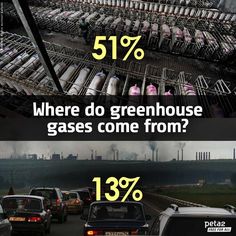The Unfolding Crisis
As wildfires rage across British Columbia and Ontario experiences unseasonably warm winter temperatures, Canadians find themselves facing the harsh reality of climate change. These increasingly frequent and severe weather events serve as a stark reminder that climate change is not a distant threat; it is unfolding here and now. The urgent call from scientists and environmental advocates to take action is louder than ever, but is the public and government response commensurate with the crisis at hand?
Public Sentiment Shifts
According to a recent survey by the Angus Reid Institute, nearly 70% of Canadians now view climate change as a top priority issue—up from 53% just five years ago. This burgeoning concern is being matched by a notable shift in political discourse. Federal politicians are clamoring to outline their climate action plans as the implications of climate change permeate every aspect of Canadian life. Prime Minister Justin Trudeau’s government recently announced new carbon reduction targets aimed at curbing emissions by as much as 40% by 2030.
Grassroots Movements Gain Momentum
Alongside political initiatives, grassroots movements continue to gain traction. Young activists, such as 17-year-old Greta Thunberg, have inspired a whole generation to mobilize for climate justice. Protest signs demanding urgent action and climate accountability are becoming common sights at rallies in cities across the country. Just last week, a massive demonstration in Toronto drew an estimated 10,000 participants, all chanting for robust measures to combat the climate crisis.
The Business Community Responds
Interestingly, the business community is also responding to the climate crisis in measurable ways. Large corporations are beginning to recognize that their survival may hinge on addressing climate change effectively. Climate action has become a key pillar for many Canadian businesses, with companies like Shopify and Ben & Jerry’s carving out ambitious sustainability targets. As Michael McCarthy, a sustainability consultant, aptly put it, “Businesses are realizing that sustainable practices are not just good for the planet—they’re essential for profitability in a changing market.”
Political Polarization
However, despite this growing consensus among the public and private sectors, climate change remains a point of contention among political parties. The Conservative Party continues to advocate for traditional energy sources, emphasizing job security in Alberta’s oil sands. This ideological divide poses a significant hurdle for Canadians seeking unified action against climate change.
Looking Ahead
The science is clear: if substantial changes are not made, the consequences of climate change will continue to escalate, leading to dire economic and ecological damage. Inaction could lead to increased temperatures that result in food and water shortages, greater health risks from pollution, and the displacement of communities across Canada. With scientists warning that we may only have a decade to make meaningful change, the question remains: how long will the public and policymakers maintain this momentum toward solutions?
As Canada stands at this crucial fork in the road, it is clear that the choices made in the coming years will reverberate through generations. Enhanced collaboration across political lines, sincere public discourse, and sustained grassroots efforts will be essential if Canada is to tackle the climate crisis effectively. With public sentiment shifting in favor of bold action, the time for meaningful change is now.

